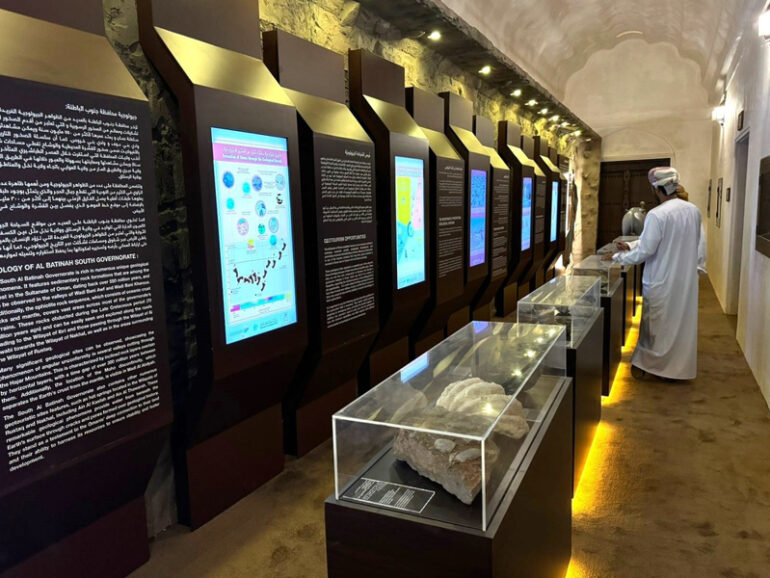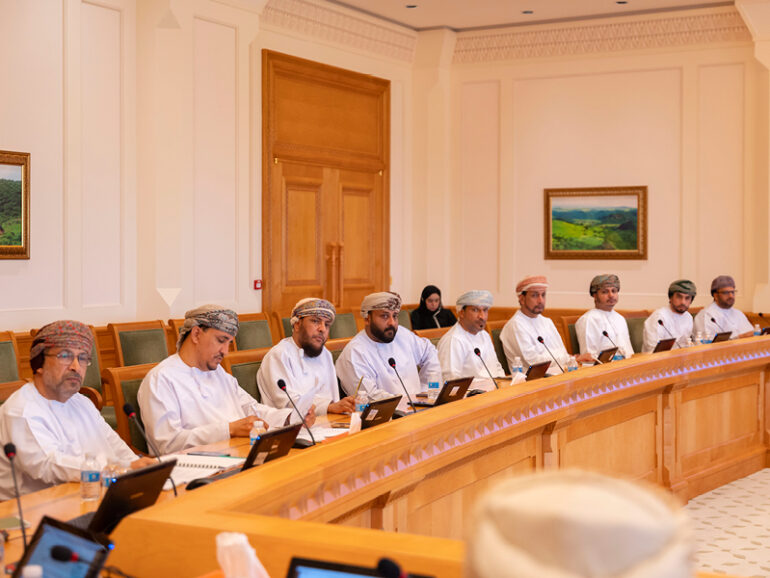
Muscat – The State Council convened on Tuesday for its eighth session of the second ordinary term, during which it reviewed several key legislative proposals and strategic studies aimed at enhancing Oman’s legal and economic frameworks. The session, chaired by H E Sheikh Abdulmalik Abdullah al Khalili, Chairman of the State Council, discussed the Real […]
Muscat – The State Council convened on Tuesday for its eighth session of the second ordinary term, during which it reviewed several key legislative proposals and strategic studies aimed at enhancing Oman’s legal and economic frameworks.
The session, chaired by H E Sheikh Abdulmalik Abdullah al Khalili, Chairman of the State Council, discussed the Real Estate Registry Law, the Draft Law Amending Certain Provisions of the Arbitration Law in Civil and Commercial Disputes (Royal Decree No. 47/97), and the Civil Society Organisations Law.
The Council examined the opinion of the Legal Committee regarding the Real Estate Registry Law, as referred by the Council of Ministers. The proposed legislation aims to strengthen legal safeguards for property owners and beneficiaries, simplify property registration procedures and real estate transactions, and introduce digital documentation, including electronic title deeds integrated with government systems. These measures are aligned with the sultanate’s national digital transformation strategy.
The session also considered the opinion of the Social and Cultural Committee on the Civil Society Organisations Law. The draft law provides a comprehensive framework for the regulation and operation of civil society entities, including associations, non-governmental organisations (NGOs), professional societies, volunteer groups, and expatriate clubs. It aims to enhance their role in community development while addressing regulatory challenges posed by the current legal framework.
Additionally, the Council reviewed proposed amendments to the Arbitration Law in Civil and Commercial Disputes. The changes are intended to align national legislation with international standards in arbitration, thereby improving the credibility and efficiency of dispute resolution mechanisms. The amendments are expected to boost investor confidence and support Oman’s aspirations to become a regional centre for commercial arbitration, in line with Oman Vision 2040.
Beyond legislative matters, the Council reviewed a study conducted by the Special Committee on Mechanisms for Diversifying Income Sources in Oman. The study highlights challenges to fiscal sustainability, pinpoints inefficiencies in current revenue streams, and proposes strategic solutions to enhance economic resilience. It also recommends legislative and governance reforms aligned with the objectives of the 11th Five-Year Development Plan.
The session concluded with the presentation of a report by the General Secretariat outlining the Council’s recent activities.


 Global diving fest in August to boost marine tourism in Musandam
Global diving fest in August to boost marine tourism in Musandam
 Dakhliyah to host month-long tourism festival in Jabal Sharqi
Dakhliyah to host month-long tourism festival in Jabal Sharqi
 MHT showcases geological wealth at Al Hazm Castle
MHT showcases geological wealth at Al Hazm Castle
 Majlis A’Shura consults sports clubs on draft law for associations
Majlis A’Shura consults sports clubs on draft law for associations
 Never leave children alone near water, ROP cautions families
Never leave children alone near water, ROP cautions families
 Oman Charitable Organisation disburses over RO3mn aid across Oman in H1 2025
Oman Charitable Organisation disburses over RO3mn aid across Oman in H1 2025